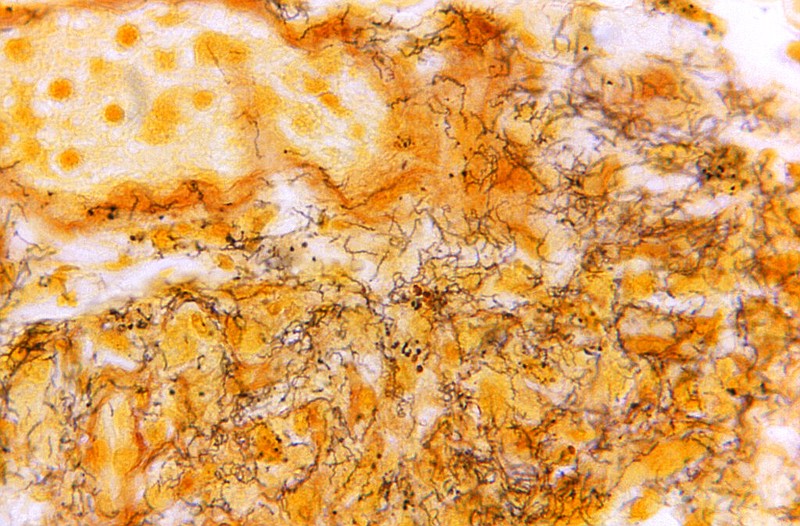Syphilis cases increased 65% during the past year in Hamilton County, prompting Health Department officials to issue a warning Thursday urging prevention and testing for people who are sexually active.
Syphilis is a sexually transmitted infection that's treatable but can cause serious health problems, including nervous system, visual and/or auditory damage. If left untreated, organ damage and in rare cases death can occur decades after the initial infection.
Rates of sexually transmitted infections and diseases "declined dramatically" during the first year of the pandemic but resurged by late 2020, according to a statement from the Hamilton County Health Department.
In 2022, Hamilton County reported 196 syphilis cases compared to 119 cases in 2021 and 62 in 2020, according to data from the Tennessee Department of Health. Statewide, there were 3,382 syphilis cases reported in 2022 -- up from 2,593 in 2021 and 2,008 in 2020.
The U.S. Centers for Disease Control and Prevention website states trends for sexually transmitted illnesses were likely affected by both underreporting of infections and, possibly, increased STD transmission.
"It's likely that such effects will persist for several more years, and we may never know the full impact of the pandemic on STDs," the CDC website states. "What is clear, however, is the state of STDs did not improve in the United States. Prevention and control efforts remain as important as ever."
(READ MORE: 'Out of control' STD situation prompts call for changes)
Syphilis spreads from person to person through direct contact with a sore caused by the infection.
"Sores can occur in, on or around the genitalia and lips or mouth. Syphilis can spread during vaginal, anal or oral sex," the county Health Department states. "Pregnant individuals with syphilis can transmit the infection to their unborn children. Infection develops in stages (primary, secondary, latent and tertiary). Each stage can have different signs and symptoms."
A painless, ulcer-like sore typically develops during the primary stage of syphilis, but there may be multiple sores.
The sore is usually firm, round and painless and found at the location where syphilis enters the body, according to the Health Department. It usually lasts three to six weeks and heals regardless of whether a person receives treatment.
But if the infected person isn't treated, syphilis will progress to the secondary stage, which is characterized by skin rashes and/or sores in the mouth or genitalia. Other signs and symptoms of secondary syphilis include fever, swollen lymph nodes, headache, hair loss, sore throat and muscle aches.
"The symptoms of secondary syphilis may go away without treatment. However, without treatment, the infection will progress to the latent and possibly the tertiary stage of the disease," the Health Department states, noting that the nervous system, vision and hearing can be damaged at any stage of infection.
The latent stage of syphilis occurs when there are no visible signs or symptoms of the disease, and syphilis will remain hidden in the body as long as it's not treated.
If syphilis is allowed to persist more than 10 years, infected individuals may enter the tertiary -- and potentially fatal -- stage of disease. Although most people with untreated syphilis do not develop tertiary syphilis, when it does happen, it can severely damage internal organs and cause death, according to the Health Department.
About 15% to 30% of people with untreated syphilis go on to develop tertiary syphilis, according to the Mayo Clinic website.
Anyone with signs or symptoms of syphilis or who has had sex with a person diagnosed with the disease should be tested and treated.
"In addition, health care providers should routinely test for syphilis in people who are pregnant, sexually active, living with HIV and those who are taking PrEP for HIV prevention. When diagnosed and treated in its early stages, syphilis is curable," the Health Department states.
The most effective way to prevent syphilis is to use condoms during sex, the Health Department states, but abstinence is the only way to completely avoid contracting the disease.
The county's Sexual Health Clinic is a confidential clinic that provides testing, education and medication for sexually transmitted infections. Appointments can be made by calling 423-209-8250 or visiting the Hamilton County Health Department website.
Contact Elizabeth Fite at efite@timesfreepress.com or 423-757-6673.
